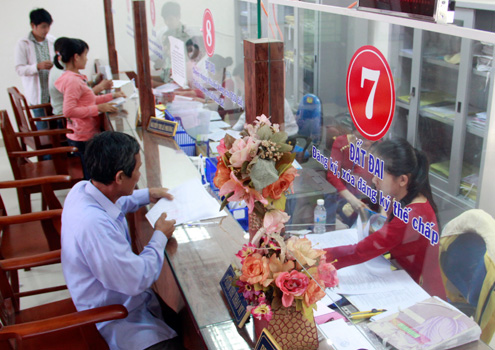
Each public servant will be
assessed by at least four people in his/her office.
The public servants who will be assessed online include
directors, deputy directors of state departments, chairs and vice chairs of
districts, the chief and vice chief of other state agencies and all public
servants of state agencies and district people’s committees in
Public servants will be evaluated in three categories,
through a specialized software in the offices, including: objectives and
tasks assigned; the results based on actual products; and civil servants in
the same units commenting on each other.
Firstly, the public servant will score himself in work,
attitude, responsibility ... and is then assessed by his boss for the second
time. Later colleagues in the same agency will make comments on each other.
The staff will secretly assess their bosses and the higher-level officials
will make the final marks.
The working result of public servants is monitored
monthly and quarterly and will be the basis for the annual review. If a
public servant does not fulfill his tasks for two consecutive years, he will
be fired. This is also the basis for emulation and commendation, income
distribution and allocation of administrative expenses.
Director of the Department of the Interior Dang Cong
Ngu said this model of evaluation aims to well manage human resources, to
help leaders evaluate the work of the staff honestly and effectively.
"The advantage of the model is to promote
openness, democracy, taking the actual working results as a measure and
public servants will also be seen from various angles. It is also an
opportunity for public servants to listen to comments, suggestions from their
colleagues to improve work efficiency," Ngu said.
From July to September 2012,
Tran Cham
|
Thứ Bảy, 1 tháng 6, 2013
Đăng ký:
Đăng Nhận xét (Atom)
Không có nhận xét nào:
Đăng nhận xét